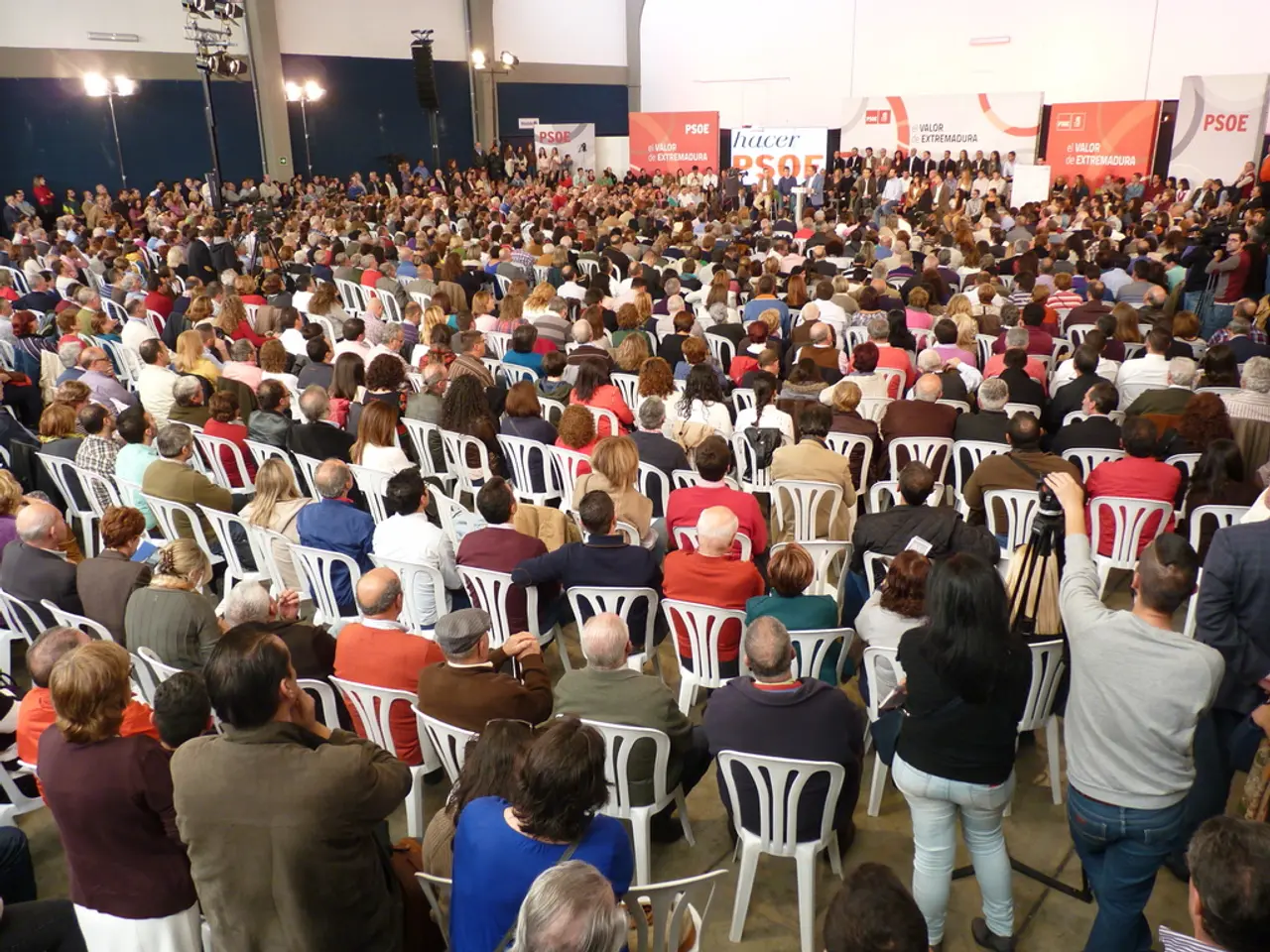In response to Trump's correspondence, the EU unveils a fresh set of reciprocal tariff measures - In response to Trump's correspondence, the European Union unveils fresh tariff retaliations
The European Union (EU) has announced counter-tariffs on US imports worth a staggering €72 billion, following President Donald Trump's recent tariff announcements. The announcement, made by EU Commissioner Maros Sefcovic after a meeting of trade ministers in Brussels, marks a significant escalation in the ongoing trade dispute between the two economic powerhouses.
The counter-tariffs, which are a retaliatory measure by the EU, will be imposed on a variety of US imports, including aircraft, automobiles, medical devices, IT equipment, and industrial machinery. The EU is also considering restrictions on export items such as scrap metals and chemicals, worth about €4.5 billion.
The value of the counter-tariffs is noteworthy, representing approximately 7% of the total US exports to the EU in 2019. The EU's move comes in response to tariffs announced by President Trump, which have disrupted global trade and sparked concerns about a potential trade war.
However, the EU is not closing the door on negotiations. As early as July 2025, the EU under Commission President Ursula von der Leyen was actively seeking to reach a tariff deal with the United States before the August 1 deadline set by President Trump, aiming to avoid further escalation.
Germany, one of the EU's largest economies, has urged the EU to adopt a tough stance with countermeasures if a "fair deal" cannot be reached. The German government has made it clear that the EU won't accept unfavorable terms and is prepared to respond firmly if needed.
The EU's counter-tariffs reflect a comprehensive strategic response to the Trump administration's tariff announcements. The EU is planning to impose significant additional duties on a wide array of US imports worth around €95 billion, covering more than the €72 billion figure associated with Trump's tariffs.
The public consultation on potential countermeasures, which began on May 8, 2025, invites feedback from stakeholders and the public, ensuring a transparent and inclusive process. The EU's counter-tariffs are intended as a possible response if EU negotiations with the U.S. fail, and they involve imposing additional import duties on the specified US products.
As the trade dispute between the US and the EU continues to unfold, both parties are under pressure to find a resolution that benefits global trade and maintains economic stability. The EU's counter-tariffs serve as a stark reminder of the potential consequences of protectionist trade policies and the importance of diplomacy in resolving trade disputes.
[1] European Commission, (2025). EU adopts countermeasures in response to US tariffs on steel and aluminium. European Commission. https://ec.europa.eu/commission/presscorner/detail/en/IP_25_2048 [2] European Commission, (2025). EU and US to intensify talks on steel and aluminium tariffs. European Commission. https://ec.europa.eu/commission/presscorner/detail/en/IP_25_1958 [3] Reuters, (2025). Germany urges EU to adopt tough stance in steel tariff talks with U.S. Reuters. https://www.reuters.com/article/us-europe-usa-trade-germany-idUSKCN25I2JR
- The EU's counter-tariffs, a retaliatory measure in response to President Trump's tariff announcements, are not limited to specific sectors but will also impact employment policies, considering the wide array of US imports they are intended for, such as IT equipment and industrial machinery.
- As the trade dispute between the US and the EU escalates, the EU's community policy may also be influenced by the potential consequences of protectionist trade policies, given that the counter-tariffs cover a wide array of US imports, including sectors that contribute significantly to employment in the EU, such as automobiles and aircraft.






